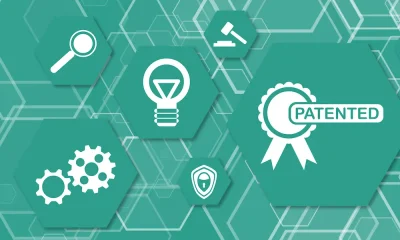Management
4 Ways Business Leaders Can Master Productivity

One of the best ways to make a business fail is to waste time – and it’s not just the slackers who are the problem. Business A is managed by someone who goofs off – let’s call him Bill. Bill spends half his morning checking the stock market (which is not a part of his job). He takes too much time at lunch hour. His desk is messy, and he can’t find what he needs when he needs it. His projects are always behind schedule.
Business B is run by a perfectionist, Sally. She gets everything done with the utmost attention to detail. Every email is spell-checked, and every process is followed to a T. All her files are in order, and every email is tagged and cross-referenced. The problem? To get everything done, Sally stays late most nights, and she works through the lunch hour. She’s tired, distracted, and grumpy. Her responses to clients are curt and abrupt. In the end, her projects are behind schedule and over budget.
Both Bill and Sally are ruining the business by not getting things done quickly enough. And until you master productivity, you’ll never reach your potential as a business leader. Even if you already enjoy an impressive amount of success, better productivity would mean even more extraordinary results for your company.
4 Ways to Master Productivity
Mastering productivity doesn’t need to be a challenge. In fact, it’s simply about understanding how to make the most of the resources you already have.
1. Use Delegation to Make the Most of Each Team Member
Delegation means putting others in charge of important tasks you’d otherwise complete.
Successful delegation requires giving this kind of work to people who can do it correctly. That will demand some training at first. It will be worth it in the long run, though, as you’ll be freed up to handle tasks that truly require your attention.
Here’s some advice from Harvey Mackay on delegation:
- Don’t seek perfection
- Be clear with your instructions
- Check back on progress
As Mackay points out, delegation isn’t just about improving productivity. If you’re not delegating regularly, stress will eventually hinder the quality of your work.
2. Create Processes That Create Desired Results
Although some tasks will always involve a degree of variance, look for ways to limit this as much as possible. Project management methodologies are great for this. No matter what kind of project you’re working on, a tried-and-true methodology can be applied to cut out variations. This will streamline the path to success.
Do the same for employees’ tasks, but don’t forget about your own. Create written instructions that describe exactly what has to happen to complete a task. Revise them overtime as necessary so they become as specific as possible.
Think about how Ray Kroc made McDonald’s successful. He so meticulously detailed every single task an employee carried out that you could put them in another location on the other side of the country, and their productivity wouldn’t suffer a bit.
3. Use Technology to Multiply Your Efforts
Almost every area of a business can be improved with technology. This is especially true when it comes to productivity. Technology can be a force multiplier that takes you beyond what you can naturally do. Just don’t let it become a big time-waster. Use it wisely.
Begin by deciding what you’re currently struggling with the most when it comes to productivity. Then find an app to tackle it. For example, this might mean downloading a calendar app like Fantastical for your phone, so you no longer miss important meetings or other obligations.
If you find yourself constantly taking notes by hand (and, subsequently, losing them), use a cloud-connected app like Evernote to keep your ideas safe and easy to access.
Whatever your challenge is, there’s an app that can help. It just takes a little time to consider your needs.
However, there is such thing as too much technology. At first, start small with apps or software until you’re comfortable using just one or two. You can always add more in the future.
4. Leverage Peer Pressure to Keep Yourself Accountable
If you have a hard time reaching your productivity goals, it helps to let others know about them. Leveraging this kind of accountability is one of the main – and most important – disciplines in The 4 Disciplines of Execution: Achieving Your Wildly Important Goals, written by Sean Covey, Chris McChesney and Jim Huling.
According to the authors, to create greater productivity among an entire team, members should be instilled with a sense of accountability, not just their supervisors. You can do this by assigning tasks involving a high level of collaboration, so team members must check in on and answer one another. This type of peer pressure can have positive results because members don’t want to let down their coworkers if they fall short.
Begin Practicing Productive Habits Today
The sooner you begin improving your productivity, the sooner you’ll find your business is producing more in the same amount of time. Get started today by picking just one area to improve. Can you delegate more? Update your processes? Streamline your information with better technology? Gain accountability? Take small steps to build momentum.









